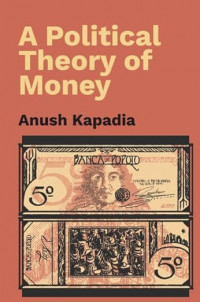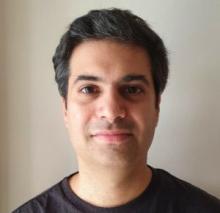A talk by Anush Kapadia, Associate Professor of Economics in the Department of Humanities and Social Sciences at the Indian Institute of Technology, Bombay, on his new book, A Political Theory of Money.
The event will include a conversation between Prof. Kapadia and Prof. Bruno Meyerhof Salama, Lecturer at UC Berkeley Law School, Legal Studies Program, where he teaches Law and Economics I, Law and Economics II, Monetary Law and Regulation, Law Technology and Entrepreneurship, and Law and Development.
 About the Book: Understanding money’s nature as political, institutional, and material answers today’s big money questions. Money remains a foundational question of social theory. What is money? Why does something so insubstantial have value? How do money systems make promises function like valuable things? Why are money systems always hierarchical yet variable? The answer, the book argues, is politics. Money is institutionalised social power. Politics generates institutions that differentially lock into the future product of political and economic collectives. Money emerges from the institutionalisation of social antagonisms to encapsulate a collective’s productive potential in a flexible, tradable instrument. This takes a system. Money is built in hierarchical layers out of the inherently variable material of politics and at various economic scales. This book outlines these variable processes theoretically and through case studies.
About the Book: Understanding money’s nature as political, institutional, and material answers today’s big money questions. Money remains a foundational question of social theory. What is money? Why does something so insubstantial have value? How do money systems make promises function like valuable things? Why are money systems always hierarchical yet variable? The answer, the book argues, is politics. Money is institutionalised social power. Politics generates institutions that differentially lock into the future product of political and economic collectives. Money emerges from the institutionalisation of social antagonisms to encapsulate a collective’s productive potential in a flexible, tradable instrument. This takes a system. Money is built in hierarchical layers out of the inherently variable material of politics and at various economic scales. This book outlines these variable processes theoretically and through case studies.
About the Author: Anush Kapadia, Associate Professor of Economics in the Department of Humanities and Social Sciences at the Indian Institute of Technology, Bombay. Prof. Kapadia works on the politics of financial systems and his research interests are Sociology and political economy of finance, Political economy of development, Indian political economy, Theories of money, Classical political economy, New and old Institutionalism and History of economic thought. He has conducted both theoretical and empirical work in case studies covering Indian bond markets, the US shadow-banking system, the EU, and the global reserve system.
Event live streamed on FB at ISASatUCBerkeley
_________________
Follow us on TWITTER
Like us on FACEBOOK
For DIRECTIONS to the Institute please enter “Institute for South Asia Studies” in your google maps or click this GOOGLE MAPS LINK.
PARKING INFORMATION
Please note that parking is not always easily available in Berkeley. Take public transportation if possible or arrive early to secure your spot.
Event is FREE and OPEN to the public.
_________________
If you require an accommodation for effective communication (ASL interpreting/CART captioning, alternative media formats, etc.) or information about campus mobility access features in order to fully participate in this event, please contact Puneeta Kala at pkala@berkeley.edu with as much advance notice as possible and at least 7-10 days in advance of the event.

